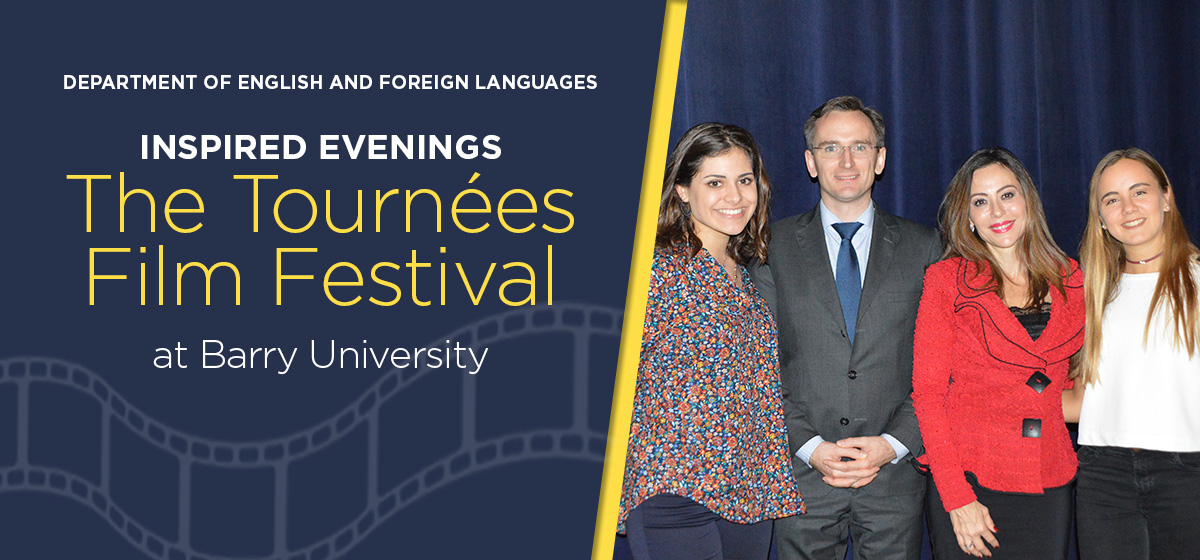By Ana Aguiar
In a world where our daily lives are dominated by smartphones, we are trapped in a routine that doesn’t allow us to explore our five senses. Drained by hours and hours in front of that tiny screen of a gadget in our hands or even that of the computer, we scarcely explore the gamut of sensory experiences facilitated by our vision and our hearing. “Screen time” is an addictive and inevitably repetitious, and the distraction of the constant flow of new information updates prevent us from realizing what is actually going on with our lives, let alone the world at large.
However, Barry University holds events and activities that, aside from giving us a chance to escape from this unhealthy routine, enable students, faculty, staff, and the community at large to be in contact with different cultures and learn more about them. Moreover, at these events and activities we can meet and talk to new people, practice and discuss what we learn inside the classroom and be more aware of what is happening around the world.
The Tournées Film Festival, organized by the Department of English and Foreign Languages in collaboration with the Department of Fine Arts and the Department of Communication, presented a great opportunity to put into practice all of this. Each Thursday evening of February, the festival presented a movie from a list of six French-speaking cinema artworks. Those who attend the festival enjoyed cinema in an inspiring, old-fashioned way: projection on a big screen and popcorn, followed by a vigorous debate with friends.
During the kick off of the Tournées Film Festival, students, faculty, administrators, staff, and representatives of the community shared a unique moment during the opening ceremony and the installment of the festival. Through enlightening speeches, John Musulin, the media center manager of the Department of Communication; Dr. Laura P. Alonso-Gallo, chair of the Department of English and Foreign Languages; French professor Heidi Cohen; and Consul General of France in Miami Clément Leclerc, stressed the importance of this cultural opportunity. According to them, those who attend the evenings are going to be enriched and more aware when it comes to francophone culture and French-speaking countries. In the consul’s words, the event promotes “cultural awareness and diversity” and shows, for example, France’s passion for cinema — a nation with a sizeable economic support of and for cinematographic work.
Barry students Josefina Foa Torres and Victoria Martinez provided the audience with contextualized information about the history, culture and religion of The Democratic Republic of the Congo, the setting for the festival’s premiere movie, “Examen d’État.” This French-speaking country in Central Africa continues to experience serious social and economic situations as the Congolese population is extremely poor, deals with a high infant mortality percentage, and struggles to — as the movie suggests — provide adequate and accessible educational opportunities for its youth.
The contextualization was crucial for the audience to guide themselves as the plot developed over the course of the movie. In the Congo, young people need to pass the national baccalaureate exam to have a chance to escape from manual labor and possibly join a university or build a career. The movie, presented documentary style, follows the journey of a group of students as they prepare for this national exam. The students study in a poor prep school that struggles to pay the professors. If the students don’t pay the fees, they can’t stay inside the classroom — which is exactly what happens to the main group of students. Without proper material or guidance to study for the national diploma, they have to find alternative ways. Medicinal plants, preachers blessing their pens or even exorcizing the “demons” preventing them from passing, and recent graduate cheat sheets are their only paths to success.
“Examen d’État” portrays what education means in Congolese society and makes the audience aware of how lucky they are to have easier access to education. Afterwards, Torres and Martinez led a debate among the audience members, and the conclusions were significant. Some points raised included a discussion of the desperate and dignified dedication of the main characters’ pursuit of the right to take the decisive and life-changing exam; many were equally shocked and inspired by the story. The effort of those students to just have a chance to change their lives underlines the fact that knowledge is one of the most important and most valuable pillars of our own journey. Their struggles drove everyone to deep reflection of self and world awareness.
The first evening of the Tournées Film Festival was an external and internal experience. Those who attended could leave their routines for a little while and join a healthy and eye-opening experience that will definitely change how they see education and life opportunities.
Ana Aguiar hails from Brazil. She is a first-year student who has declared a major in English.

